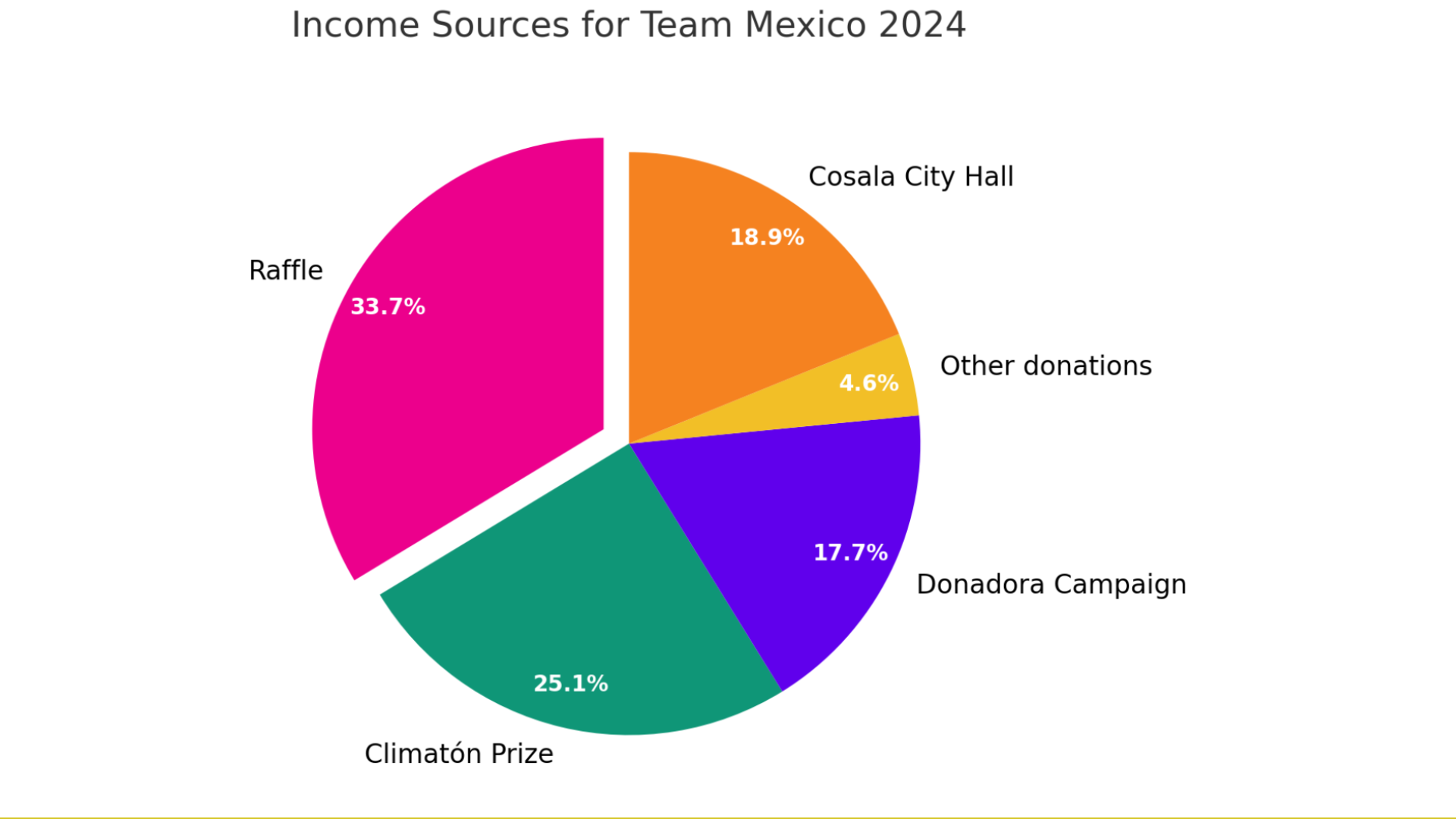Crowdfunding & Sponsors
Crowdfunding
To fund our participation in iGEM 2024, we implemented a range of strategies to cover the competition's expenses. Our first effort was a crowdfunding campaign through Donadora, where we outlined our goals and detailed how the funds would be used. This initiative attracted 102 donors and raised $28,206 MXN, covering approximately 14% of the total cost.
Next, we developed a sponsorship portfolio to highlight Agropip’s significance for Mexican agriculture and how sponsors could contribute to sustainable farming. Alongside this, we received additional donations amounting to $7,300 MXN and reached out to private companies and government organizations to increase our funding opportunities.
Beyond crowdfunding and sponsorships, we organized a raffle, which significantly bolstered our funds, generating $53,555 MXN. Additionally, we secured a $40,000 MXN prize from the Climatón competition. These efforts were further supported by the Cosala City Hall, which contributed $30,000 MXN. Together, these initiatives helped cover a large portion of the competition costs, ensuring our participation in iGEM 2024.

Sponsors
Ginkgo Bioworks
We are incredibly grateful to Ginkgo Bioworks for their sponsorship of $7,000 USD in DNA synthesis, as well as for their mentorship and support with experimental tasks. We are especially thankful to Luis Ortíz for advising and supporting us with such dedication, and to Cristiane Toledo, Melanie Abrams, Beatriz Pacheco, Mary Tsai, and Pedro Baldera Aguayo, along with the rest of the Ginkgo team, for their invaluable help throughout our journey.
Cosala Municipality
We also extend our heartfelt thanks to the municipality of Cosala for providing us with a platform to discuss the challenges we aim to address and for their sponsorship, which has been key to advancing our project. Their support has allowed us to continue working toward a sustainable solution for agriculture in Cosalá and Mexico.
UNAM Faculty of Sciences
We would like to express our sincere gratitude to the UNAM Faculty of Sciences for providing us with laboratory equipment and access to their facilities for our experiments. Their support has been crucial to the progress of our research, and we deeply appreciate the opportunity to conduct our work in such a well-equipped and collaborative environment. Without their generosity, many of our advancements would not have been possible.